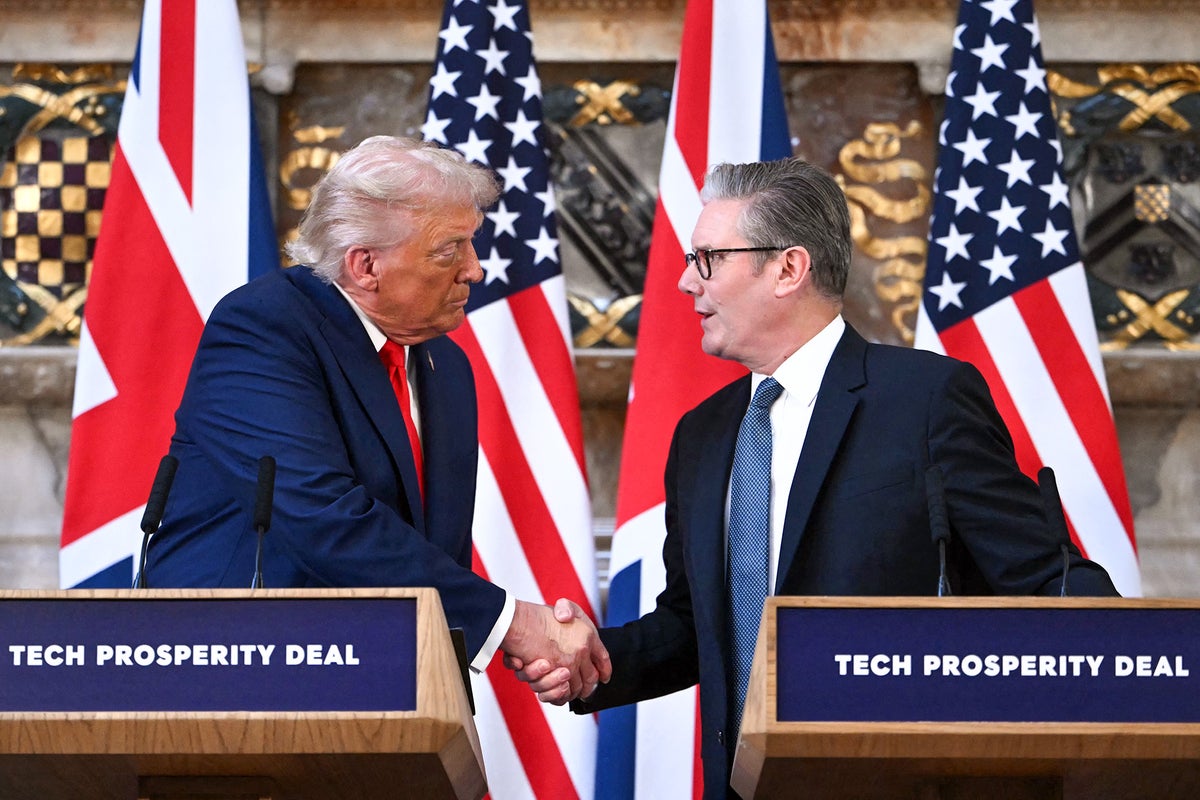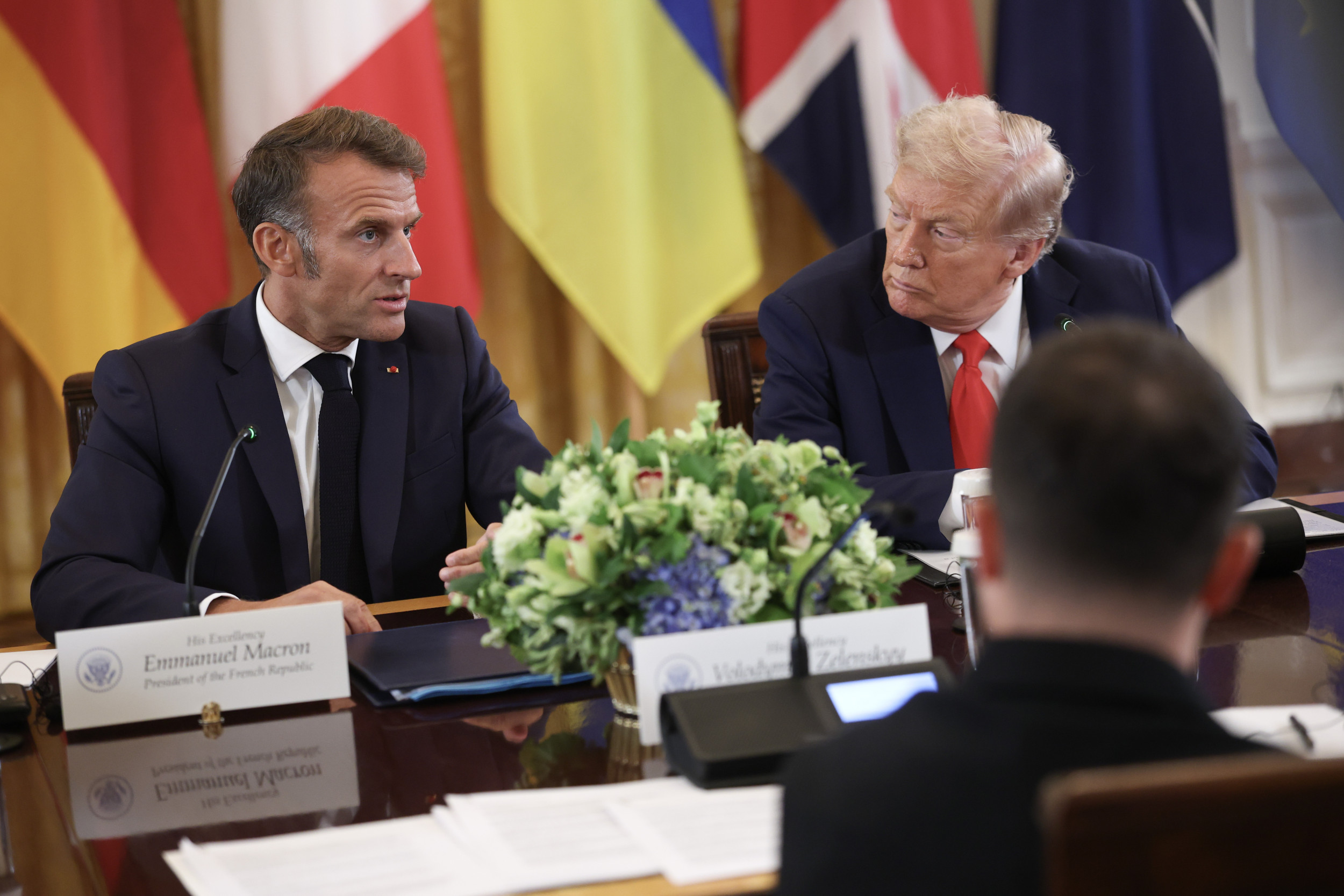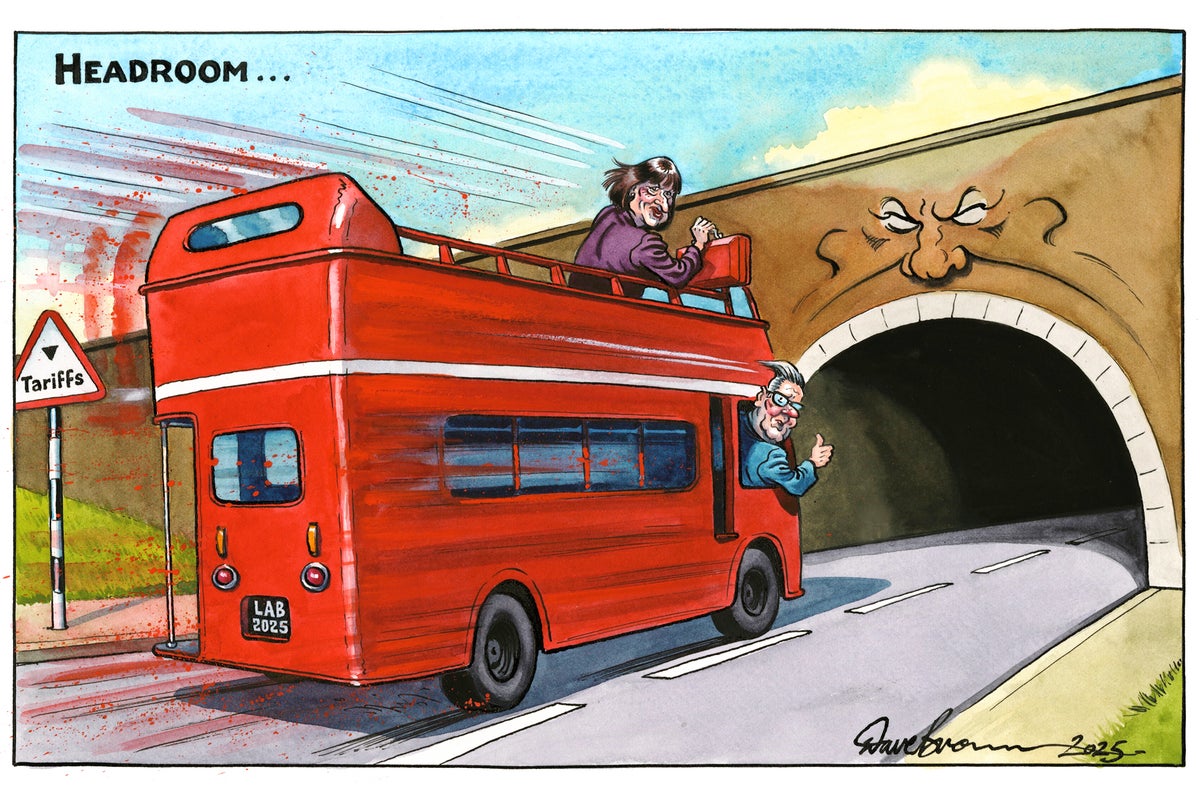Five thousand miles from Alaska, and feeling left out, Ukrainians were bracing themselves on Friday for the outcome of negotiations to which they were not invited.
The talks, between US President Donald Trump and his Russian counterpart Vladimir Putin, will begin later in the day with no seat for the Ukrainian president Volodymyr Zelensky.
Trump signalled earlier this week that “land swaps” could be on the table – largely interpreted to mean the surrender of Ukrainian land to Russia.
In Ukraine, where polls consistently show that about 95% of the population distrusts Putin, there is a uneasy mix of deep scepticism about the talks and deep fatigue with the war.
“This question touches me directly,” said Tetyana Bessonova, 30, from Pokrovsk – one of the eastern cities whose future is in question if land were surrendered to Russia.
“My hometown is on the line of fire. If active fighting stops, would I be able to return?” she said.
Questions of negotiations, of land swaps, of the redrawing of boundaries were deeply painful to those who grew up in the affected regions, Bessonova said.
“This is the place I was born, my homeland,” she said. “These decisions might mean I could never go home again. That I and many others will lose all hope of return.”
The French President, Emmanuel Macron, said on Wednesday that Trump had agreed on a call with European leaders that no territorial concessions would be made without Ukraine’s approval. And Trump has said he intends to hold a second summit with Zelensky present, before anything is agreed.
But Trump can be unpredictable. He is often said to favour the views of the person he spoke to most recently. So there is little faith in Ukraine that he won’t be swayed by Putin, particularly in a one-on-one meeting.
The very fact of the closed door meeting was bad for Ukraine, said Oleksandr Merezhko, a Ukrainian MP and chair of the country’s parliamentary committee on foreign affairs. “Knowing Trump, he can change his opinion very quickly. There is great danger in that for us.”
Merezhko said he feared that, such was Trump’s desire to be seen as a dealmaker, he may have privately made advance agreements with the Russians. “Trump doesn’t want embarrassment, and if nothing is achieved, he will be embarrassed,” the MP said. “The question is, what could be in those agreements?”
Various possibilities have been suggested for arrangements that could lead to a ceasefire, from a freezing of the current frontlines – with no formal recognition of the seized territory as Russian – to a maximalist position of Russia annexing four entire regions in eastern and southern Ukraine.
Polls suggest that about 54% of Ukrainians support some form of land compromise in order to hasten the end of the war, but only with security guarantees from Ukraine’s international partners. So deep and widespread is the distrust of Russia, that many believe an agreement to freeze the frontlines without security guarantees would simply be an invitation to Russia to rest, rearm, and reattack.
“If we freeze the frontlines and cede territories it will only serve as a platform for a new offensive,” said Volodymyr, a Ukrainian sniper serving in the east of the country. In accordance with military protocol, he asked to be identified only by his first name.
“Many soldiers gave their lives for these territories, for the protection of our country,” Volodymyr said. “A freeze would mean demobilization would begin, wounded and exhausted soldiers would be discharged, the army would shrink, and during one of these rotations the Russians would strike again. But this time, it would be the end of our country.”
Across Ukraine, people from all walks of life were making very tough decisions about the reality of their future, said Anton Grushetsky, the director of the Kyiv International Institute of Sociology, which regularly polls the population about the war.
One of the toughest decisions was whether to accept the idea of giving de facto control of some Ukrainian soil to Russia, he said. “It’s 20% of our land and these are our people. But Ukrainians are showing us that they are flexible, they are telling us that they will accept various forms of security guarantees.”
According to the institute’s polling, 75% of Ukrainians are totally opposed to giving Russia formal ownership of any territory. Among the remaining 25%, there were some people who were pro-Russian, Grushetsky said, and some who were simply so fatigued by the war that they felt hard compromises were necessary.
“My belief is that the war should be stopped in any way possible,” said Luibov Nazarenko, 70, a retired factory worker from Donetsk region, in Ukraine’s east.
“The further it goes, the worse it becomes,” she said. “The Russians have already occupied the Kherson region and they want Odesa. All this must be stopped, so the youth do not die.”
Nazarenko has a son who is not yet fighting but could be called up. She said she believed that three years into the war, with hundreds of thousands of dead and wounded on the Ukrainian side alone, the preservation of life superseded all concerns over land.
“I just don’t want people to die,” she said. “Not the youth, not the old people, not the civilians who live on the frontline.”
On Friday, as the clock ticked down to the beginning of the talks in Alaska, Ukrainians were celebrating a holy day – the day of the Assumption of the Blessed Virgin Mary. It is the day when she is believed to listen to the prayers of all who need her.
At St Michael’s Monastery, a church in central Kyiv, priest Oleksandr Beskrovniy was leading a prayer service for several dozen people. Afterwards, he said it was hard to find words to describe the unfairness of the coming talks, but called it a “great injustice and madness” to leave Zelensky out.
Like others, the priest recognised the grim reality facing Ukraine, he said – that it was not in a position to recapture its stolen territory by force. So some deal needed to be made. But it should be thought of less in terms of land, Beskrovniy said, and more in terms of people.
“If we are forced to cede territory – if the world allows this – the most important thing is that we gather all of our people. The world must help us get our people out.”
In his prayers on Friday, the priest did not refer directly to the talks in Alaska, he said – “no names or places of meetings”.
But he prayed for the future strength of Ukraine, he said. “On the frontline, and in the diplomatic space.”




